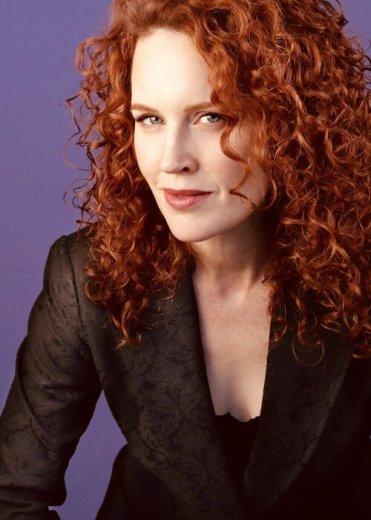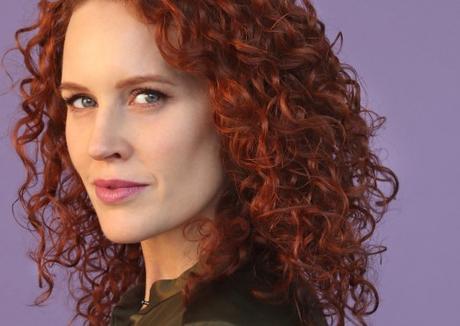 If you have Apple TV+ you’ve probably already been introduced to the world of “See”. If you haven’t, “See” is a new futuristic series that has been available since November 1st. It comes from the producers of The Planet of the Apes Trilogy, written by Steven Knight (“Peaky Blinders”) and directed by Francis Lawrence (The Hunger Games: Catching Fire and Mockingjay Parts 1 & 2).
If you have Apple TV+ you’ve probably already been introduced to the world of “See”. If you haven’t, “See” is a new futuristic series that has been available since November 1st. It comes from the producers of The Planet of the Apes Trilogy, written by Steven Knight (“Peaky Blinders”) and directed by Francis Lawrence (The Hunger Games: Catching Fire and Mockingjay Parts 1 & 2).
“See” shows the audience a future where a virus has wiped out a large part of mankind. The remainder of the population has been left without the ability to see and forced to survive until a set of twins are born with sight, challenging everything everyone has come to accept.
Marilee Talkington stars as “Souter Bax”, alongside actions Jason Momoa (Aquaman), Oscar-nominated and Emmy-winning actress Alfre Woodard (12 Years a Slave, Captain America: Civil War) and Archie Madekwe (Midsommar). Marilee was able to answer some of our questions for our readers so that they could get to know her and her character better.
Entertainment Jolt: I was wondering, first of all, if you could give our readers a little more background into your latest drama “See” that is airing on Apple TV+? What is your character like and how is she important to the story?
Marilee Talkington: Souter Bax is such a delicious and deep feeling character. She is one of the leaders in The Alkenny Village which Baba Voss and Paris rule. But in Souter’s mind, she should be the one in charge at this point. Unfortunately, Baba Voss, Paris and Maghra now have stripped her of that possibility, her status and her family’s dignity and safety. She is a fighter underneath her deeply unsettled and wounded exterior, desperately trying to reclaim some sense of power and agency. To this end, she is one of the Alkenny that works to take Baba Voss, Paris and Maghra down.
EJ: What got you excited to play this role?
MT: Reading her sides, I found the complexity of her emotional life thrilling. She has been deeply wronged and is both vulnerable and absolutely fierce. She is hungry as a woman and I get to show that in its raw form. At times, she is unhinged as a human desperately clawing for anything that will keep her feeling safe. Alive. But, ultimately, she is a deep well of need and feeling and her drive in this show is incredibly intense and rich.
EJ: Shooting this show, the people acting around you were not supposed to be sighted. Did that make things easier or harder for you on set?
MT: As someone who has been doing art for nearly 25 years – never having any blind or visually impaired role models, never seeing anyone like me on stage or screen – I knew that to remain whole, healthy and a contributing artistic force, I had to stick to the job at hand: Which was to focus wholly on Souter’s life and story, and the larger narrative of “See”. If I focused on the reality that people like me are excluded from an entire industry just because we happen to visually perceive the world differently, I would emotionally and mentally be able to be an artist in situations like these. Simultaneously, because I was one of the only authentically cast individuals in a cast of hundreds, I knew that what I was offering to Souter was an experience of true humanity. I was never there “to play blind”. I brought my lived experience to that role. A lived experience that cannot be taught or trained.
EJ: From what you can tell so far, if you are even allowed to speculate, does this drama continue to second season?
MT: It’s already been announced. There will be a season two.
EJ: Your background, up until recently, was mostly comprised of theater. What made you decide to transition into television?
MT: For two reasons. One I knew I was ready to dive into another medium of storytelling. I was hungry to stretch out. I wanted to see what I could learn from the camera and how I could expand in my expression. I have since fallen in love with on-camera work and have even begun doing solo-films now. The second reason was that ever since I started on the acting path, I have known deep within that I was meant to help create change in the industry. I am an artist and will be one until I leave this body. But I know that thru my art, I am also an advocate, meant to contribute to a paradigm shift of possibility and thought around “otherness” and disability.
EJ: What role have you done, in theater or on television, that has had the greatest impact on you as an actor? As a person?

MT: I’ve done so many incredible characters over these past decades so it’s hard to choose. But, as an artist I think the most impactful role was in a show I did at Berkeley Rep under Tony Taccone’s direction, called X’s & O’s. Because I do a lot of transformative work, I often get cast in shows where I play multiple characters. And X’s & O’s was just that. But the difference here was that it was the first time I appeared on a Tony Award Winning stage. And it felt right. It was a moment where I felt completely worthy to be there, and I knew viscerally that my path would keep leading me to collaborate with more and more visionaries.
On a personal level, I think the character I felt the most impacted by Annie Barth on “NCIS”. It was the first time I was authentically cast to play a blind woman. And it happened to be on the number one watch show in the world. After it aired, I received countless numbers of letters, emails, messages from viewers – teachers, parents, individuals, young people – sharing with me that their blind student or child saw me and, all of a sudden, they wanted to be an actor. All of sudden, they ‘opened up’. All of sudden, something that was impossible just became possible. Or, they themselves as blind or low vision individuals had a profound experience of ‘being seen’ for the first time on TV because it was an actual blind woman playing a blind woman. What became crystal clear to me was that people around the world are hungry for authentic representation. Desperate for it. So that was a real moment for me and it galvanized my purpose in a whole new way.
EJ: You are a huge proponent of getting more creators/artists who happen to have disabilities into the industry should they seek it out. Can you tell our readers some of the things you have done to get people with disabilities recognized and encouraged to pursue their dreams?
MT: Well, right now, literally November 11th, 2019, I have just launched the first ever Professional Actor Training Program designed specifically for blind, low vision and visually impaired actors. And actors, or aspiring actors, at any level can apply for it. The website is www.AccessActing.com. It is a 5-week, full-time, rigorous intensive happening in Los Angeles in January 2020. We are accepting applications until November 30th. Actor training of this caliber (M.F.A. Acting teachers are the faculty and the president of the C.S.A. is a collaborator!) and this level of accessibility has never been available before. It’s past time for this profoundly rich and untapped talent to be cultivated, collaborated with, celebrated and realized. I’m so deeply proud to be able to offer the training. Oh, and it’s TUITION FREE!
Other than that, I have helped to start several national groups of thought leaders that are pioneering new aesthetics around disability. And I have been coaching and consulting for nearly 20 years, helping actors (non-disabled and disabled) realize their own potential as artists, while helping universities, theaters, drama programs innovate new ways to think about how they can be more equitable and inclusive.
EJ: What would you tell aspiring actors that it is easier to get into… film or theater? Why?
MT: You can create a film in minutes right now with your phone. Right now, this instant, you can go do it. You can do it in your room, outside in the streets, on a set of stairs. In a hallway. You have the power at your fingertips. So, it is by far the most accessible route right now. But… there is nothing like the learning you receive from being a theater actor. It demands something that film and TV don’t. A level of incredible stamina to stay in the story, and a willingness to share breath with the audience that is right there with you. There is nothing like it. And there are no cuts or edits. Theater demands you share yourself in a completely different way in which you feel your impact immediately. So… which one is easier? Depends on what you want for yourself. Making a career as an artist is never easy. So, I say always choose what makes your heart sing and go after that! Otherwise, you’ll be fighting against yourself the entire way.
EJ: Okay, just for fun, what is your favorite hobby to do between takes? What about your downtime between projects?
MT: I love to take portraits of other actors between takes. In costume, just being fierce. I have snuck my Iphone (in airplane mode of course) onto the set so many times just so I can catch a few cool pics. Between projects, to stay balanced and sane, I will dance. I will draw. I will dream. I will spend time in San Franscisco. I will take epically long walks through the vineyards in Napa Valley. And I read. I read like a maniac.
If you are looking for other ways to catch up on Marilee Talkington’s career, you can watch her past guest star spots on NBC’s “New Amsterdam”, CBS’ “NCIS” and countless theater productions, both off-Broadway and Regional. And be sure to sign up with Apple TV+ to see her latest role in “See”.
Have you had a chance to watch “See” yet? What did you think? Are you ready for Season 2 already? Are you a prospective disabled actor thinking to check out her wonderful opportunity with her latest project? Drop me a line in the comments and let me know.
Photo Credit: Crystal Haring

